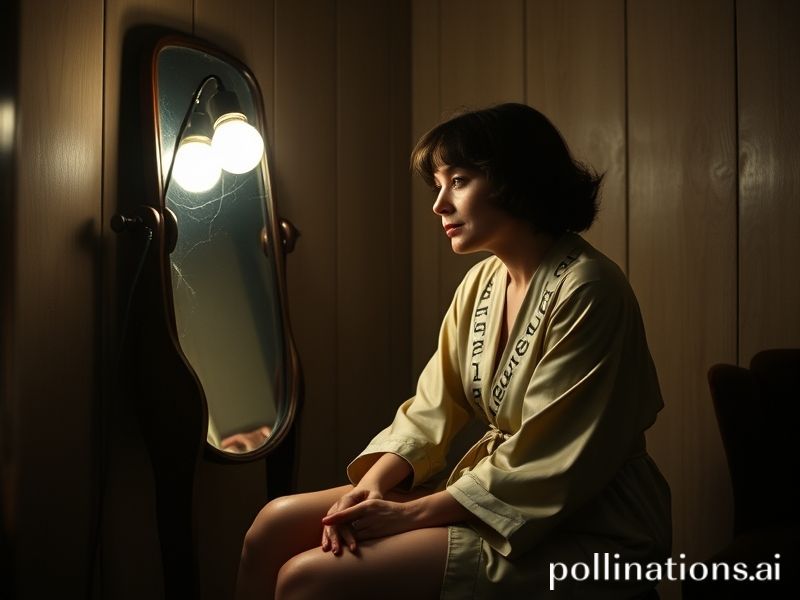Cristin Milioti: The Accidental Prophet of Global Dystopia Hollywood Didn’t Know It Needed
**The Last Palindrome: How Cristin Milioti Became the World’s Accidental Oracle**
While the planet burns and billionaires race to leave it, Cristin Milioti has quietly become our most unlikely global prophet. Not through any particular ambition—heaven forbid—but by stumbling through roles that somehow predict our collective unraveling with the precision of a Swiss watchmaker who’s had too much schnapps.
From her breakout as the Mother in *How I Met Your Mother*—a character literally killed by the writers’ need for a tidy ending—Milioti has specialized in portraying women who discover that the stories they’ve been sold are elaborate cons. It’s a niche that’s proven remarkably portable across borders, perhaps because fraud is humanity’s most successful export.
In *Palm Springs*, her character Sarah finds herself trapped in a time loop, reliving the same wedding day endlessly. The film dropped in 2020, just as the world entered its own temporal prison of lockdowns and Groundhog Day existence. International audiences—particularly those in countries where “essential worker” became code for “expendable”—watched Sarah’s existential crisis with the hollow recognition of someone seeing their own diary adapted for television.
The actress’s recent turn in *Made for Love* pushed the surveillance state paranoia further, casting her as a woman implanted with a chip that allows her tech-bro husband to track her every movement. Viewers in nations where Pegasus spyware flows like cheap wine at a diplomatic reception recognized the particular horror of intimacy weaponized into control. That the show premiered while actual billionaires were actualizing their dreams of escaping to actual space stations felt less like coincidence and more like Milioti had become the poster child for late-stage capitalism’s greatest hits.
What’s fascinating is how Milioti’s characters resonate differently across cultures while maintaining their essential truth. In Japan, where *hikikomori* isolation has become a national crisis, her portrayals of women choosing voluntary withdrawal feel like documentary. In Brazil, where algorithmic governance has turned citizens into data points, her tech-dystopian roles play as cautionary tales that arrived precisely one scandal too late. Even in Denmark—happiest country on Earth, according to surveys that somehow never account for the antidepressant consumption—audiences embrace her work as validation that their suspicion of perfection might be the most rational response available.
The international appeal lies not in Milioti herself—she remains refreshingly allergic to the influencer industrial complex—but in her knack for embodying the moment when personal disappointment collides with systemic collapse. Her characters don’t save the world; they simply notice it’s ending with a clarity that feels almost rude. It’s a quality that translates across languages, cultures, and economic systems: the recognition that we’re all passengers on the same slowly sinking ship, arguing over deck chair arrangements.
As streaming platforms proliferate like rabbits in a post-apocalyptic zoo, Milioti’s brand of weary wisdom has become a global currency. From Mumbai to Munich, viewers recognize themselves in her portrayals of people who’ve read the terms and conditions and discovered, too late, that the only winning move was not to play. That she delivers these truths with the comic timing of someone who’s seen it all before and wasn’t impressed the first time only sharpens the blade.
In a world where sincerity has become another brand strategy and authenticity is manufactured in bulk, Cristin Milioti remains accidentally honest—a quality that’s become our most precious and endangered resource. She isn’t trying to save us. She’s just pointing out that the lifeboats were rented out for a tech conference months ago, and we’re all still pretending this ship was ever seaworthy.
The joke, of course, is that we’re all in on it now.







